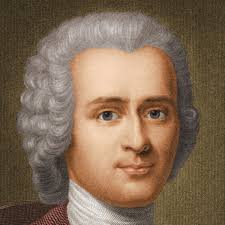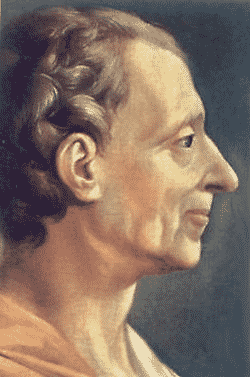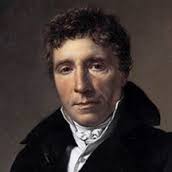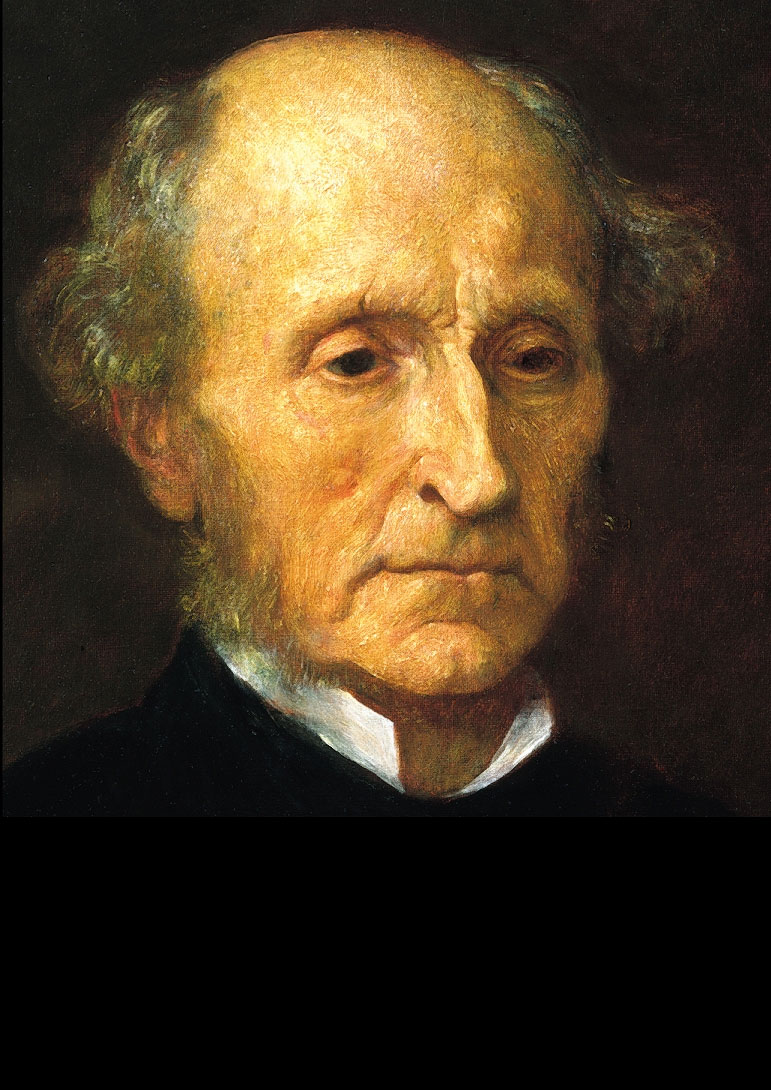Jean-Jacques Rousseau
General Information
Jean Jacques Rousseau, was born at Geneva on June 28th, 1712. He was an influential Genevan philosopher, writer, and composer of 18th-century Romanticism. His political philosophy deeply influenced the major revolutions like the French Revolution and the American Revolution.
Political and Social Views
He was and is a national hero to the French and hero to those who benefit from his teachings and the freedom that it engendered.
Charles de Secondat; Baron of Montesquieu
General Information
Charles Louis de Secondat was born in Bordeaux, France, in 1689 to a wealthy family. Despite his family’s wealth, he was placed in the care of a poor family during his childhood. He later went to college and studied science and history, eventually becoming a lawyer in the local government. He  gained fame in 1721 with his Persian Letters, which criticized the lifestyle and liberties of the wealthy French as well as the church. However, Montesquieu’s book On the Spirit of Laws, published in 1748, was his most famous work.
gained fame in 1721 with his Persian Letters, which criticized the lifestyle and liberties of the wealthy French as well as the church. However, Montesquieu’s book On the Spirit of Laws, published in 1748, was his most famous work.
Political and Social Views
Montesquieu argued that the best government would be one in which power was balanced among three groups of officials. Montesquieu called the idea of dividing government power into three branches the “separation of powers.” He thought it most important to create separate branches of government with equal but different powers. That way, the government would avoid placing too much power with one individual or group of individuals. His ideas about separation of powers became the basis for the United States Constitution.
Despite Montesquieu’s belief in the principles of a democracy, he did not feel that all people were equal. Montesquieu approved of slavery. He also thought that women were weaker than men and that they had to obey the commands of their husband. However, he also felt that women did have the ability to govern.
Voltaire
General information 
His name is François-Marie. He was a French philosopher. Born in 1694 and died in 1778.
Voltaire was educated by Jesuits at the Collège Louis-le-Grand in Paris from 1704 to 1711, where he showed an early gift for languages, learning Latin and Greek as a child, and later becoming fluent in Italian, Spanish and English as well. By the time he left college, Voltaire had already decided he wanted to become a writer. However, his father very much wanted him to become a lawyer, so Voltaire pretended to work in Paris as an assistant to a lawyer, while actually spending much of his time writing satirical poetry.
Political and Social Views
Voltaire did not like France at the time because he thought that it was old fashioned, he had trouble with the French authorities for his energetic attacks on the government. He also did not like the church and thought that people should be allowed to believe what they want which resulted in numerous imprisonments and exiles throughout his life. However he did not like democracy either and thought that a country needed to be led by a wise and strong king. Voltaire had to live in exile in England for three years from 1726 to 1729 where these ideas were more common. He was particularly impressed by Britain’s constitutional monarchy, its support of the freedoms of speech and religion. Voltaire was born into a very wealthy family. Being a wealthy since birth didn’t really allow him to see what it would be like to be poor. In fact with all his works, he became a very wealthy man. So this could have affected his attitude towards the revolution, because he wasn’t particularly fighting for lower taxes like poorer people were. He just mainly wanted justice. Voltaire’s class wasn’t as affected as the Middle and Lower, but everyone was affected. Because he wasn’t part of the clergy, no one hated him for that, but a majority of the French society hated nobles for their wealth and low taxes. Luckily for Voltaire, he was a writer and got on many people’s good sides with his works and attitude. A lot of his work was against France and the Church. This meant that he was unpopular at first but became more popular towards the time of the French Revolution. When he died, aged 83, Voltaire was a hero of French people.
Emmanuel Joseph Sieyes
General Information
Sieyes was born in Frejus, in southern France, on May 3rd, 1748. He became a priest in 1774 and was called Abbé Sieyes. However, Sieyes did not believe. He was actually fond of Enlightenment ideas which he spread widely.
Political and Social Views
Abbé Sieyes became very famous when he published a pamphlet in January 1789 attacking noble and clerical privileges. This essay was considered a foundation of the French Revolution of 1789.
Sieyes was elected representative of the Third Estate during the Estates General meeting of May 1789. He proposed the transformation of the Third Estate chamber to a National Assembly. He participated to the Tennis Court Oath, worked on the Constitution and drafted the Declaration of the rights of man and citizen.
Sieyes promoted the creation of the French “departments”. During the Terror, he voted for the execution of Louis XVI and abandoned his position in the Church. He also was respected by the French people.
John Stuart Mill
General Information
John Mill been called the most influential English-speaking philosopher of the 19th century, was a British philosopher, economist, and moral and political theorist. Born in 1806, John was taught Greek, Latin, mathematics, philosophy and economics from a very early age by his father. He was subjected to a rigid system  of intellectual discipline. John was influenced by his father’s friends, in particular, Bentham, who together with James Mill, founded utilitarianism.
of intellectual discipline. John was influenced by his father’s friends, in particular, Bentham, who together with James Mill, founded utilitarianism.
Political and Social Views
Mill was considered one of the greatest of Victorian liberal thinkers, influencing the study of philosophy through his restatements of the principles underlying philosophical empiricism and utilitarianism. Initially setting out to follow the strict utilitarian line, he was later influenced by his wife Harriet Taylor and by a severe mental crisis in 1826-1827, which made him deviate from Bentham and his father, humanising and idealising it. He became sympathetic to socialism, and he was a strong advocate of women’s rights and such political and social reforms as proportional representation, labour unions, and farm co-operatives. Thus, he became a defender of individual liberty against the interference of both society and state and an early advocate of women’s equality. However, while Mill advanced the cause of democracy to a considerable degree, for example in 1869, he eloquently argued for the right of women to vote. He nonetheless believed, like Plato, that “higher minds” should set the tone of society.
